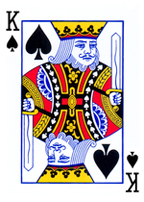In A House Of Cards, Content Is King
By Tony Clark, 2-Dooz Inc. – February 4, 2013 (Original Publication Date)

 The Netflix new original series, “House of Cards,” was released last week. While the jury is still out regarding whether or not the strategy underlying the release will be enough to resurrect the company’s longer term prospects, “House of Cards” loudly reaffirms that content is still king.
The Netflix new original series, “House of Cards,” was released last week. While the jury is still out regarding whether or not the strategy underlying the release will be enough to resurrect the company’s longer term prospects, “House of Cards” loudly reaffirms that content is still king.
Netflix CEO Reed Hastings is reported to have said that “his company's goal is to morph into a next-generation HBO before HBO has the chance to do that themselves.” With the release of “House of Cards,” Netflix is forging ahead with this mission.
As I previously opined, I believe that the company is barking up the wrong tree. The company’s (and for that matter HBO’s) real competitive threat is coming from Amazon ($AMZN), Apple ($AAPL), and Google ($GOOG). And, “House of Cards” does nothing to change the calculus. Sure, the series may be a first for Netflix, but it hardly gives them first mover status. Amazon already has Amazon Studios and Google, through YouTube, already boasts the largest library of original content, including “Gangnam Style,” which recently surpassed one billion views. Still the release of Netflix’s new series does underscore the power of content.
In the longstanding relationship between content and distribution, content for now remains the undisputed king of the castle—a role that it seems to have enjoyed forever. In spite of the fact that each new distribution mechanism (e.g., broadcast TV, cable TV, satellite TV, Premium cable TV, Pay-Per-View, VCR, DVD, and web based streaming) brings with it the potential to swing the balance of power in distribution’s favor, in the end, content prevails.
Netflix understands that because content has the stronger hand, the only way to be successful as a distributor is to dominate the channels in which they participate. Netflix did this with DVD rentals, but streaming, as I previously mentioned, is another game with more formidable competition altogether. In this context, the move towards original programming makes sense, even considering that the company is playing catch up. Staying the course is not an option. Where Netflix currently sits—between a rock (pure distribution) and a hard place (pure content production)—is clearly intractable.
With that said and again reflecting on Mr. Hastings comments, perhaps what he means when he says “become the next-generation HBO” is that Netflix, in actuality, should become a division within a larger studio … just like HBO. Viewed through this prism, “House of Cards” takes on a much different meaning.
Those are my thoughts. And, as always, I invite and look forward to learning what you think.
